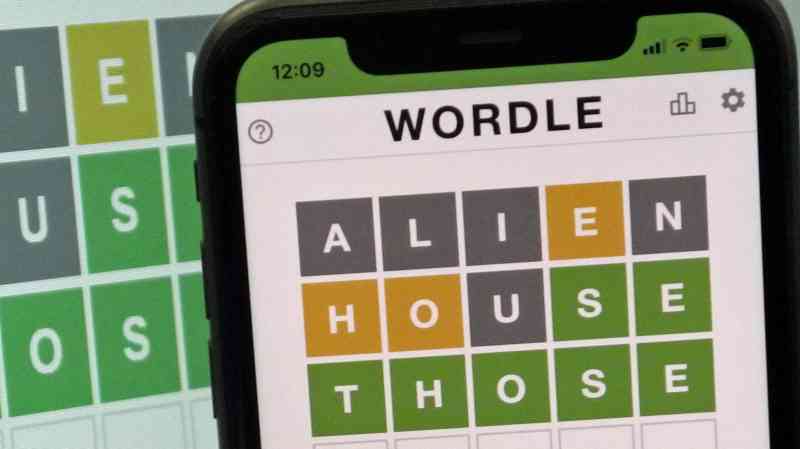My second job is playing Wordle (and I make $2k a month)
When Brian Konig files his tax return next year, he plans to declare a new source of income: Wordle money. What is a daily gaming habit for millions of people — Wordle’s six chances to guess a five-letter word — is a lucrative side hustle for the 30-year-old, whose main job is as a product manager at a technology company.
Every evening Konig opens his laptop at his kitchen table and records a video of himself playing the New York Times games of Wordle, Mini Crossword and Spelling Bee, attempting to solve the first two and guess the Spelling Bee’s seven-letter word in less than two minutes. He started playing the games during the pandemic in 2021and now shares the results on the social media platform TikTok, where he has amassed nearly 450,000 followers. Konig, who lives in Seattle, is so devoted to online puzzling that he even filmed himself playing Wordle on a chairlift during a skiing holiday.
It’s a commitment but, for Konig at least, one that seems to be worth it. The only overheads his hobby requires are an internet connection and a subscription to the New York Times. He makes a minimum of about $15 (about £12) a day from the TikTok reward programme, which calculates payouts based on engagement metrics for audiences gripped by his quest.

“I definitely feel that when I struggle more with the games, I get more engagement,” Konig said. People seem to enjoy pitching the answers at him in the comments, he said, or commiserating with his failures.
Konig earns between $1,000 and $3,000 a month from his TikTok videos, which he keeps track of in a spreadsheet. On his most successful day he earned $400 after he got a million views on his videos.
To make money from TikTok, Konig signed up to its professional Creator Rewards programme, which is available in a handful of countries, including the UK, France, Germany, the US and Japan. To qualify you must be over 18, have 10,000 followers and at least 100,000 views in the past 30 days. Your videos need to be more than one minute long and receive at least 1,000 views on the “For You” page of the app.
• My 11-year-old doubles his pocket money selling clothes online
Once this threshold has been crossed, payouts are calculated by a formula that rewards engagement. That means the longer users watch and the more they comment or interact with your content, the bigger the payment. TikTok said it is possible to get up to $8 per 1,000 views but this will vary. UK users can nominate a bank account for their earnings to be paid into, or choose to be paid via PayPal.
Konig has played word games such as Boggle with his family since he was a child. During the pandemic he received a link from his brother to a new game developed by the British software engineer Josh Wardle: Wordle. The game became so popular that in 2022 it was bought by the New York Times for a seven-figure sum and today attracts about two million players every day.
• Richard Osman: A springboard to stardom is TikTok not the Edinburgh Fringe
Konig narrates his videos, giving his readers his thought process as he makes his guesses, and keeps a spreadsheet of his performance times. “I am a data person, so I look at what worked and what didn’t, whether I perform better in the morning or afternoon.” He has had to adjust the length of his videos to make them longer so they qualify for payments from TikTok, and the two-minute race-against-the-clock format seemed to captivate users.
Other Wordle players have even larger audiences. Savannah DeLullo has 1.8 million TikTok followers and her videos feature celebrity cameos, including from the singer Ed Sheeran.
• Side-hustles and tax: how does it work?
If you are earning an income outside of your main job, be sure to check whether you need to pay any tax. All UK adults have a £1,000 annual trading allowance. This is the most you can make tax-free from casual income — such as a monetising social media videos like Konig, selling items online or babysitting — before you must declare it on a self-assessment tax return. Earnings above this amount are subject to your usual rate of income tax.




Post Comment